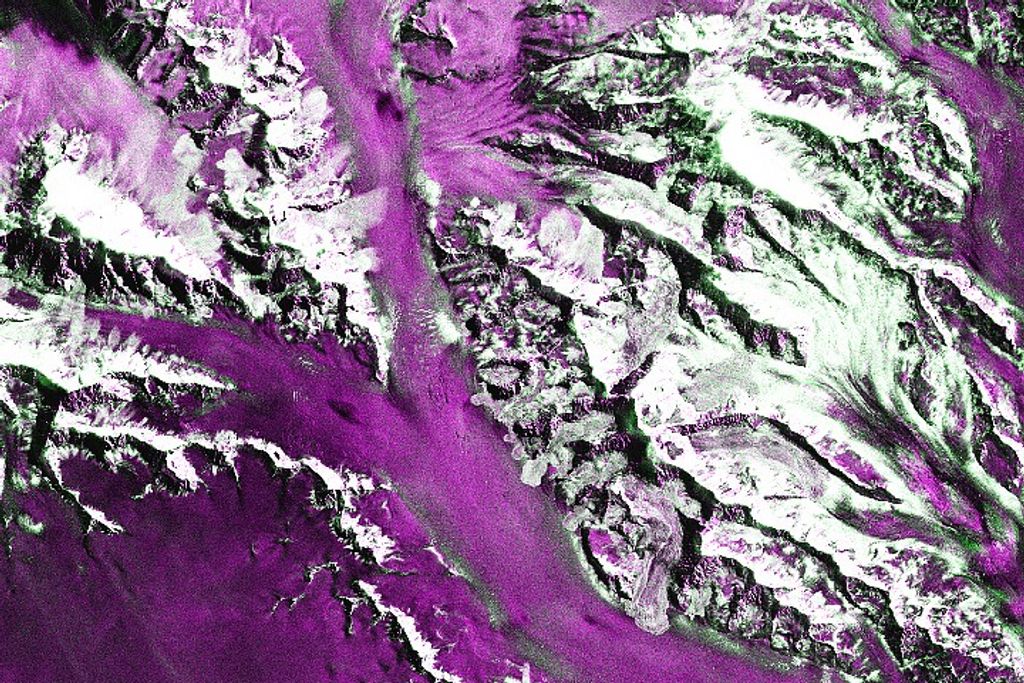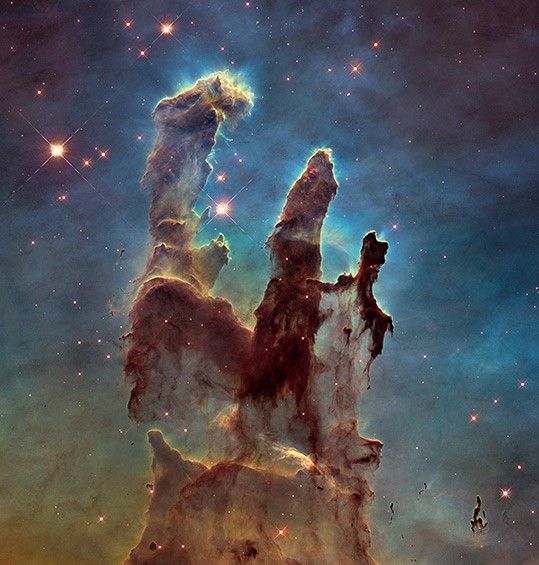1 min read
Intergalactic Vista from a Lonely Star

This is an artist's concept of the view of the nighttime sky from the surface of a hypothetical planet orbiting an "intergalactic" star in the Virgo cluster of galaxies, based on recent research with NASA's Hubble Space Telescope.
Billions of years ago, the star may have been tossed out of its home galaxy into the dark emptiness of intergalactic space by a collision or close encounter between galaxies. Now an aged red supergiant star, its dull cherry red glow floods the desolate landscape.
Hubble Space Telescope discovered 600 similar "outcast" stars in a small region in the Virgo cluster, 60 million light-years away from Earth. The stars detected are all bright red-giants. Many more dimmer stars, beyond Hubble's detection, may be among the galaxies as well.
These stars are truly "intergalactic" because they are so isolated their motion is probably governed by the gravitational field of the cluster as a whole, rather than the pull of any one galaxy.
The nighttime sky, in this imaginary view, only contains the dim fuzzy glow of elliptical and spiral-shaped Virgo galaxies - individual stars are too far away to be seen. The brightest galaxy in the image is M87, a giant elliptical galaxy containing a black hole and visible jet of high-speed particles.
About the Object
- R.A. PositionR.A. PositionRight ascension – analogous to longitude – is one component of an object's position.12h 30m 49.42s
- Dec. PositionDec. PositionDeclination – analogous to latitude – is one component of an object's position.12° 23' 27.99"
- Object NameObject NameA name or catalog number that astronomers use to identify an astronomical object.Virgo Cluster
- Release DateJanuary 14, 1997
- Science ReleaseHubble Finds Intergalactic Stars
- CreditIllustration: James Gitlin (STScI)
Share
Details
Last Updated
Aug 17, 2025
Contact
Media
Claire Andreoli
NASA’s Goddard Space Flight Center
Greenbelt, Maryland
claire.andreoli@nasa.gov





























